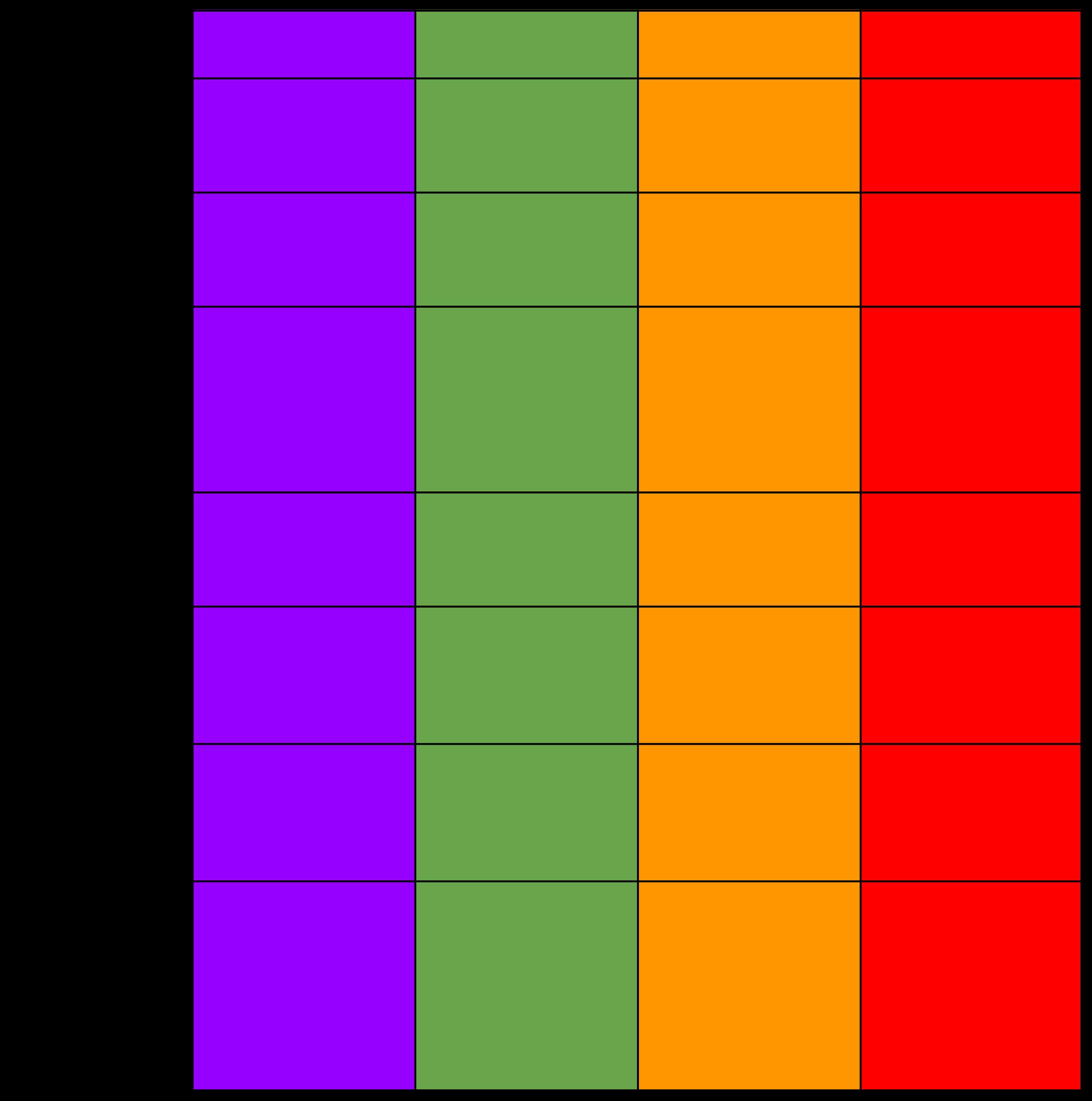ASSESSMENT POLICY





Student Handbook - Learning






Student Handbook - Learning


CATEGORY
POLICY OWNER
DATE & VERSION
APPROVED BY
REVIEW FREQUENCY
Education
Vice Principal Academics
30/09/2025 Version 6
Education, Safeguarding & Wellbeing Committee
Annual


Purpose
Statement
Implementation
1. Assessment Methods
2. Reporting
3. University Applications
4 Diploma or IB Course
5 Management of the Assessment Process Related Information 1 Related Policies
Policy Measurement and Reporting
1 Grading /Marking 2.Internal Assessment
1. Policy Purpose

This policy is a statement of the aims, philosophy and guiding principles that underpin all assessment practice at UWC Atlantic (the College). Our focus is to develop students through a holistic programme of study, and it must be reflected in our approach to assessment Decisions should therefore focus on the impact of the overall UWC Atlantic curricular programme, not just on one subject, discipline or assessments We focus on what it is important to assess and not what is easy to assess We make sure that assessment is meaningful, fair and in the best interests of the students involved.
2 Policy Statement
"Everything that can be counted does not necessarily count; everything that counts cannot necessarily be counted”. (Albert Einstein/William Cameron 1963)
The assumption of this document is that the core skills of the IB Learner Profile determine teaching and learning throughout the College. It is for this reason that the Diploma Programme influences our student centred, research based approach to independent learning
We engage our students in ‘learning how to learn’. We aim for our students to become better judges of their performance who are supported in their learning by employees helping them to develop methods for improvement.
These points are applicable across the curriculum and explain how the principles of assessment for learning identified by the IBO are implemented and supported in the College as a whole.
The IBDP Group andSubject specific assessment details are included in the Faculty Handbooks that can befound in the College’s internal electronic files.
The IBDP assessment has two parts: formal IB assessment and weekly assignments, tests and internal exams helping to prepare a student for final assessment
● Formal IB assessment includes examinations and on-going internal assessment during the course, graded or moderated by an external examiner, contributing to the final DP qualification. The principles and practices of formal assessment can be found
Student Handbook - Learning


in the document Assessment Principles and Practices - Quality Assessments in a Digital Age (2023). Specific subject information is included in the Diploma Programme Assessment Procedures (2025) and in individual Subject Guides It is expected that teachers will be familiar with all information relating to formal assessment in their subject areas
● Weekly assignments, tests and internal exams use a combination of tools and strategies to consolidate student learning in preparation for final DP grading.
Students need to understand what the assessment expectations, standards and practices are and these should all be introduced early in the course and be the focus of class and homework activities The formal assessment requirements make it clear how summative assessment will be conducted, and how the student will be judged at the end of the course
Through comprehensive, valid and reliable information, based upon grades that accurately reflect student performance measured against DP aims, objectives and criteria in appropriate ways, students learn about their performance and what they need to do to improve.
An essential component of classroom practice is formative assessment It represents “the process of gathering, analysing, interpreting and using the evidence… to help students to achieve their potential” (Guidelines for Developing a School Assessment Policy in the Diploma Programme, International Baccalaureate Organisation, 2010)
Formative assessment is supported by summative measurement The DP is criterion [not norm] referenced, and grades students against objective attributes that distinguish between different levels of attainment Teachers “must use their knowledge of IB summative assessment expectations and practices to help students improve performance in a formative way.” (Guidelines for Developing a School Assessment Policy in the Diploma Programme,)
Individual subjects are assessed on a 1-7 scale with 4 as a pass mark The maximum points total is 42 points plus 3 Diploma points for Theory of Knowledge and the Extended Essay, totalling 45 points overall. The passing grade for the DP is 24 although there are a number of failing conditions that need to be taken into account For further details of these refer to Assessment Principles and Practices - Quality Assessments in a Digital Age (2023) p 177
Summative assessment provides accurate, timely and regular grades to students in a number of ways: through homework assignments, class work, exams and end of term reports Summative assessment measures students against DP criteria and provides the
Student Handbook - Learning

basis for DP Internal Assessment (See Appendix 2 - Internal Assessment), as detailed in the subject guides, and DP Grades.
Summative assessment is also employed in setting Performance, Anticipated and Predicted Grades
Further information on grading can be found at Appendix 1 - Grading/Marking
Reports are sent electronically to parents and students as per the UWC Atlantic Tracking and Reporting Cycle through the iSAMS Parent and Student Portals Parents are able to consult with relevant employees for feedback and discussion The tutor is the first point of contact for parents
The university application procedure takes place in the second year
The deadlines are as follows:
● Early applications for Oxbridge, medicine, dentistry and veterinary school take place before the 15th October.
● Early decisions to the US occur by the 1st November
● Regular applications to the US and Canada by the 1st January, with a mid-term update by 14th February
● UCAS, apart from Oxbridge et al, the deadline is the 15th January
Anticipated Grades are important in supporting student applications to university, with 3 grades being reported as shown on the example transcripts for USA and UK/Rest of World:
● June IB1 (provisional - updated by 30th September if students have improved performance)
● December IB2 (carried forward to May IB2)
● May IB2 (updated with final IB grade in July)
Tutors and employees involved in university guidance will make it clear to students whether applications to courses and universities are realistic Students are made aware of their Performance and Anticipated Grades by tutors

The question of whether a student should be entered as a DP candidate or for Courses is one raised by teachers or tutors. The decision rests on a number of factors. UWC Atlantic will not make the decision without the approval of parents/guardians and National Committees if relevant
DP expectations regarding the assessment process are outlined in the document Programme Standards and Practices (2020). Approaches to assessment 3.4 states: “The school implements, communicates and regularly reviews consistent and fair systems and processes for reporting student progress and handling appeals or challenges.”
The College has a clear line of responsibility for the development and communication of its assessment policies based upon its faculty structure.
Responsibility for the implementation of assessment policies in the College lies with the VP Academics The Faculty Heads, as line managers in the individual subject areas, are responsible for writing and revising specific assessment plans and policies for their departments They also ensure that colleagues adhere to standards and practices and that the faculty as a whole is fully involved in the development and communication of assessment plans and policies Individual subject teachers are responsible for explaining to students all aspects of assessment practice in their subject.
Some variation is expected between faculties on what constitutes good practice in the assessment of subjects. The arts for instance are assessed in a different way from mathematics and the sciences. Some overlap may be evident and command terms may be similar. However, the specifics and wording of individual criteria will differ.
All faculties will follow the procedures and methods outlined in this policy and be consistent with the College’s assessment philosophy overall
The College’s Internal Assessment procedure can be found at Appendix 2 - Internal Assessment.

4. Related Information
4.1 Related Policies
● Academic Integrity Policy
● ● ● Attendance Policy
Behaviour Policy
Language Policy
Policy Measurement and Reporting 5
This policy is reviewed annually by the Education Committee of the Board, the VP Academics and the Faculty Heads as part of the curriculum review cycle Part of this review process will consider to what extent the policy is being used as an active working document and, more importantly, whether it is effectively impacting teaching and learning and student progress
The policy is communicated to the whole school community on Every and is available on the UWCA website
6 Page 7 of 12

Appendix 1 - Grading/Marking
This represents a student’s current working grade within the subject (given on an IB scale of 1-7), evidenced by both formative and summative assessments up to the date the grade is issued The teacher will use their professional judgement to take into account a range of data, including contextual factors, classwork, homework, formal assessments, performance trends and attitude to learning to generate a ‘best fit’ performance grade The performance grade is not merely a mathematical average of all assessed work as different components will have different levels of difficulty and different weighting in the final IB. Please note: most students will improve their performance grades over time and these grades are not shared with universities; they are used internally to monitor progress and identify underperformance, as well as to share with students and parents to give a realistic picture of where a student currently is in their IB learning journey Each update is supported by an increasing range of evidence which improves the security of the grade; therefore, Performance Grades can go up and down.
It is the responsibility of each teacher to inform students as to how Performance Grades are derived in their subject Faculty and subject assessment policies are made available to all those taking a particular subject
Due to the diverse global and linguistic backgrounds of our students, UWC Atlantic does not award performance grades in the first semester
This grade is based on cognitive ability testing (CAT) completed during student induction using external testing software From the student’s testing profile, an algorithm compares their performance with other students globally who share a similar profile and the final IB outcomes they achieve historically This then produces a ‘chances graph’ of possible grade performance. The grade we report represents the grade indicated by this testing as the student’s most likely grade by the end of the IB course based on their current cognitive ability This grade is useful to create a baseline for all students, to help teachers set realistic targets for students and to identify underperformance or potential support needs, but should be viewed with caution as it is only an indicator of possible performance and not a predictor This grade does not take into account a student’s attitude to learning or specific subject expertise As we gather more subject-specific assessment information on students, in later reports we replace this grade with an ‘Anticipated Grade’ (see below).

This represents the gradethe student is likely to achieve by the end of the IB course given all the evidence of their work andprogress so far The teacher will use their professional judgement to take into account a range of data, including a student’s current and prior performance across the course, contextual factors, classwork, homework, formal assessments, rate of language acquisition (where relevant), performance trends as well as their attitude to learning and potential for improvement to generate a ‘best fit’ anticipated grade which is both realistic and optimistic. In most cases, the anticipated grade will either be the same as the performance grade or up to one grade higher Please note: anticipated grades are shared with universities; therefore, it is important that they offer an optimistic but realistic picture of a student’s potential outcomes in their final IB diploma and are as accurate as possible to optimise a student’s chances of securing university offers that they will realistically be able to meet without limiting their potential future pathways.
The term Predicted Grade will only be used for IBO entry This is in accordance with the guidelines of the IBO
4
EAL issues do not only significantly impact the learning, progress and well-being of students, they can also negatively affect teachers’ assessment of their subject knowledge, performance, engagement and predicted attainment For this reason, students identified as having significant EAL support needs will not be assigned IB Performance Grades until the end of their first year, or until their Performance Grades are higher than 3. However, ATL Grades and teachers’ comments will be assigned and communicated to students and parents, to help monitor progress and guide improvement and development This will also be reflected in College transcripts to universities and FE institutions
For further details on support for EALstudents refer to the UWC Atlantic Language Policy.
5
Anticipated Grade Attitude to Learning Grade English as Additional Language (EAL) Grade
This represents a student’s attitudeto learning in each subject and is made up of a number of different elements related to the IB‘Learner Profile’ and the IB ‘Approaches to Learning’. Teachers will make a professional assessment to give an overall judgement based on ‘best fit’ for the descriptors below. In the event thatthe student's Attitude to Learning is deemed ‘Inconsistent’ or ‘Poor’ additional comments will be provided in progress reports and there will be follow up actions to ensure the expected attitude to learning is demonstrated in future
Attribute / Evaluation
Passion
Communication
Self-management
Challenge / resilience
Inquiry
Collaboration


Reflection
I am passionate about learning and show a desire for learning new things
I am able to express myself confidently and creatively with my peers and teachers
I am a highly effective independent learner I am always punctual, complete all homework / assessments and I am fully equipped for learning
I actively embrace challenges in my learning and support others
I am highly curious and demonstrate good initiative showing leadership within learning
I am able to collaborate effectively listening carefully to the perspectives of other individuals and groups
I am a reflective learner aware of my strengths and weaknesses I am able to learn from feedback and show its impact in my future practice/action
I am motivated and interested in learning new things
I can express myself clearly with my peers and teachers
I am organised and self-motivated. I attend class on time and I keep up-to-date with my deadlines
I am willing to attempt challenges in my learning and I rarely give up
I have a questioning mentality and I like to take the lead within my own learning.
I enjoy working with others and I am able to listen to the perspectives of other individuals and groups,
I am aware of my strengths and weaknesses and I am able to learn from feedback in order to improve my learning
I only engage in learning news things if they interest me
I sometimes have difficulty expressing myself with my peers and teachers
I am a little disorganised at times. My attendance and punctuality to class is ok but inconsistent
I am sometimes willing to attempt challenges in my learning but give up if it gets too hard
I am not naturally curious but will sometimes question things to learn more
I do not naturally enjoy working with others and need help when working in groups.
I show little or no interest in learning new things
I need support from my teachers and peers when expressing myself
I need support with my organisation and I lack self-motivation for independent tasks. I am not always ontime or prepared for class
I am not willing to attempt challenges in my learning and I give up easily
I am not curious and I need support when developing my questioning in class.
I do not work well with others and I find it difficult taking in the perspectives and views of others
I sometimes respond to feedback to improve my learning.
I do not respond to feedback in order to improve my learning

Appendix 2 - Internal assessment
UWC Atlantic sets and publishes the Internal Assessment Calendar for both IB1 and IB2 prior to the start of the academic year The Internal Assessment Calendar includes draft and final submissions of internal assessments and written assignments It also includes Extended Essay deadlines, IB Orals, field work, university tests and university application deadlines
Faculty Heads work with the VP Academics when setting effective deadlines showing understanding of the ‘big picture’ of IBDP design and having basic knowledge of each other’s subject assessment requirements The culture of strong collaborative practice is represented in this process
The aim of producing this calendar and monitoring submission of work is for students to manage their workload of assessment in a realistic fashion The calendar allows time for teachers to:
● provide feedback on drafts (one draft only for each assessment)
● check that the work is authentically that of the student
● mark final pieces of work
● prepare moderation samples in a manner which is organised and co-operative.
The Internal Assessment Calendar is made available to students electronically on the iSAMS Student Portal and in the internal electronic files. The Internal Assessment Calendar is also made available to parents on the iSAMS Parent Portal
The Internal Assessment Calendar is an essential aspect of the IB examination and assessment process. Its deadlines are binding on students and the College has the right to refuse work if it is submitted after the specified date and there is no obligation for teachers to provide feedback on drafts which are not submitted by the deadline The ‘Procedures for Submission of IB Work’ gives a summary of the processes surrounding submission of coursework
The procedure at the College for students who hand in late work is as follows The student should let the teacher know well in advance if there are extenuating circumstances for not meeting the deadline In such cases the VP Academics or Head of Academic Progress are the only staff members who can grant an extension after consulting with relevant colleagues The tutor or teacher should follow the ‘Extension Request Procedures’ and submit an ‘Extension to an IA Deadline Request Form’ for approval.
If work is late, the relevant teacher checks with the student first to find out the reason and why this was not communicated before the deadline. The teacher makes an entry on the findings in the

iSAMS Reward and Conduct section for the tutor and other relevant employees, including the Learning Support Team to follow up.
The teacher makes every effort to ensure the student meets their obligation, to the point of imposing certain restrictions such as attendance at study sessions If these efforts are unsuccessful the relevant Faculty Head takes over responsibility
In addition, all students with missing internal assessments are restricted to campus and must attend mandatory catch up sessions in the library on Friday afternoons until they have submitted the missing work The Head of Academic Progress monitors attendance at catch up sessions and that students are remaining on campus Any failure to adhere to these conditions without reasonable excuse will result in a warning through an iSAMS note followed by the College’s Behaviour Policy being applied.
In serious cases or in cases of multiple coursework pieces missing from the same student, the VP Academics intervenes and a referral is made to the Student Support Group Where necessary, an Academic Support Plan may be put in place The VP - Student Life might also be involved and if relevant, the UWC Atlantic Behaviour Policy is applied Students at the College are required to learn self-management skills and are guided in this through the tutorial system and the ‘Life Skills’ and ‘Study Skills’ programmes led by our Counsellors and The Learning Centre team. The focus of this programme is on effective approaches to learning where the student is organised and active in study and the meeting of deadlines.